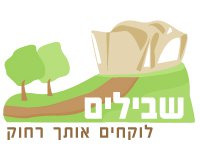ABOUT
ABOUT
About Shvilim
Shvilim (paths in Hebrew) is a center for education and nature-based expeditions established on the beliefs that nature is the best teacher and that through nature, individuals and groups undergo strengthening processes and grow.
I grew up in a kibbutz. Therefore the terms group, fellowship, and together have always been a part of me.
I worked with children in the kibbutz greenhouses, and instructed youth in various education systems and youth movements.
As a grownup, I worked as a therapist and tour guide.
With time, I wished to once again work with children and youth; help them shape their world, infuse meaning, and catalyze change. Provide support, encourage, and give children that prod that can make a world of difference in a child’s life.
With this in mind, I established Shvilim; an environment that provides oversight, supervision, and challenge, an environment in which children and youth develop abilities and self-efficacy through experiential situations that resemble life and life-circumstances.
All center activities take place in nature and use nature as a mediating tool.
Providing therapeutic sessions, the center works with groups and individuals.
OUR CALLING
An avant-garde nature-based education center, we aspire to:
EDUCATIONAL TEAM
We believe in a meaningful and constructive educational process; a process that guides and directs but also embraces the space needed for self-shaping.
The center’s goal is to expand experience boundaries, and support the creation of new insights about a child’s self, about his or her friends, as we help them understand and organize their feelings and thoughts, thereby choosing their behavior.
Our educators’ role is to mediate, reflect, bridge, and shed light on the situations and circumstances.
Since we are an educational team, we don’t necessarily provide solutions, instead, we prefer the children to grapple with the problem and try to solve it themselves, thus developing not only problem-solving abilities but also skills like restraint, flexibility, listening, communication, and reaching agreements.
CENTER STRUCTURE
Dotan Shabtay, the center’s director, earned his bachelor’s degree in Ancient Israel Studies.
He is a certified T.E.A.M and PIVOT practitioner and a facilitator for groups of youth at-risk.
A tour guide and an expedition’s instructor, Dotan also holds certification from the Ministry of Education and the Society for the Protection of Nature in Israel.
Miri Golan is the center’s head of training; a group facilitator and a sex educator for children and youth, Miri holds an MSW (Master of Social Work).
Shvilim activities are carried out through two chapters:
CORE VALUES
OUR EDUCATIONAL AGENDA
We established Shvilim Center with complete faith and belief that any person at any age - children, youth, and adults - can change.
As Prof. Reuven Feuerstein (Bar Ilan University) said, “Human beings are changing entities.”
Self-efficacy is one of the center’s pillars - the perception a person carries about his or her ability to behave, perform, and act in a certain way that will lead to, or yield a particular outcome.
Or, in other words: a person’s belief in their ability to carry out an assignment.
Four corresponding stages weaved into and throughout the process form the Shvilim Center Model:
SERVICES
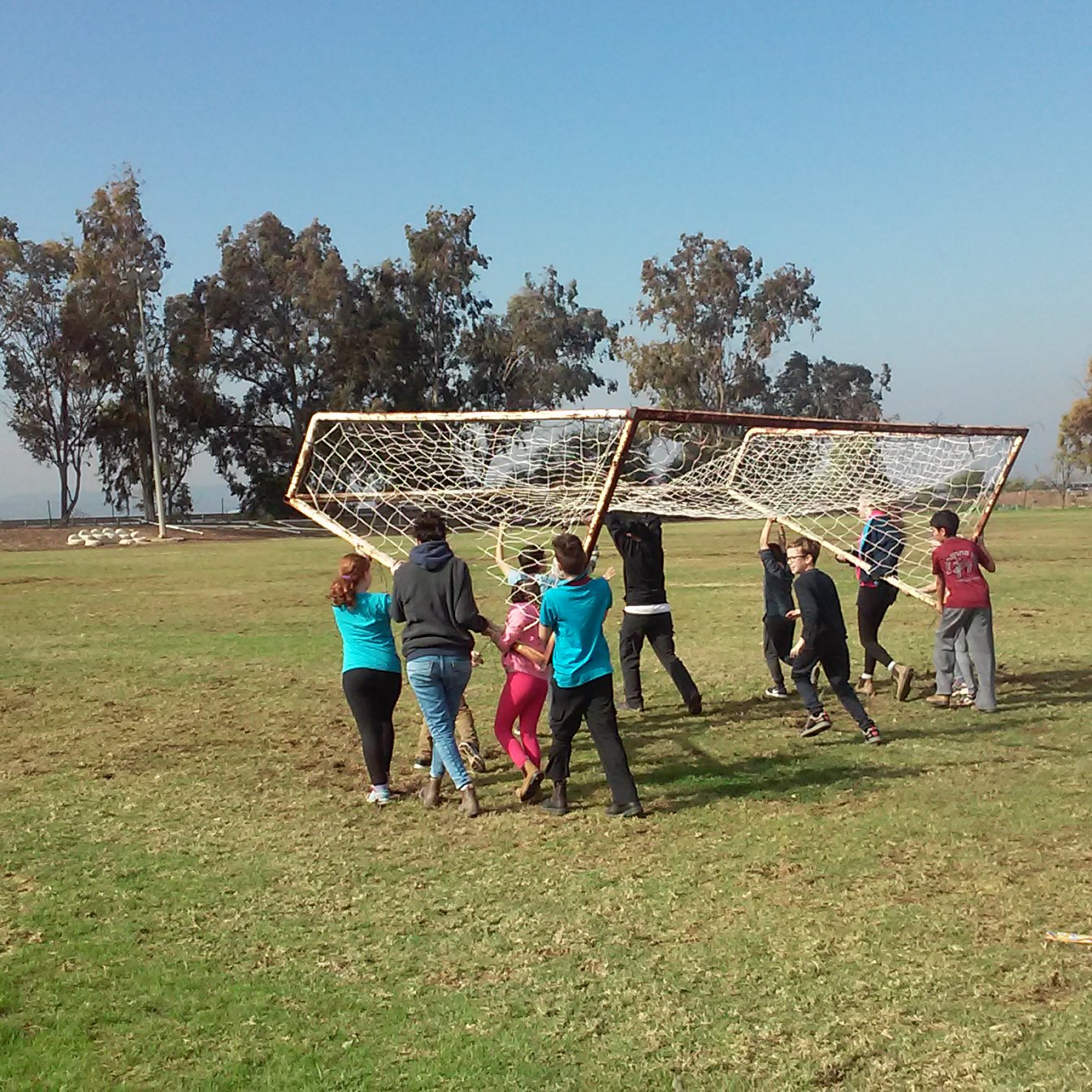
Shvilim Center’s team provides group work and activities, at schools during school hours, as part of the schools’ non-formal education curriculums. After school, and coordinating the activities with school administrations and youth’s leaderships, we follow on the groups in the community.
Aligned with group work goals and objectives, and with the center’s curriculum, most activities are held outdoors.
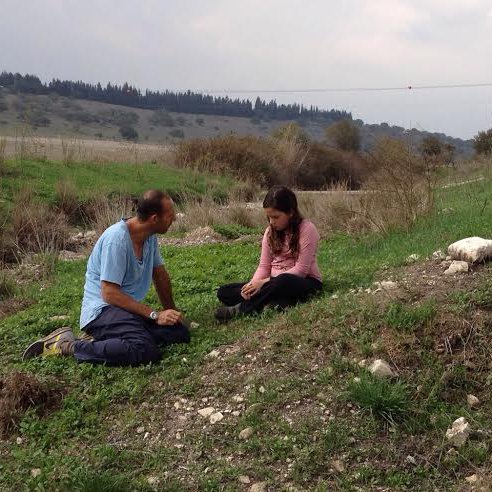
In our rounded stone hut, at Kibbutz Dalia, we hold individual therapeutic sessions. The unique building provides the optimal conditions for individual work with children, youth, and adults who need strengthening, encouragement, and direction whether mental, emotional, or physical.
In children’s and youth’s processes parents are an inherent part of the process.
Although we meet at the hut, the sessions usually take place outdoors regardless of weather conditions. And sometimes, the weather is the thing itself. Our purpose is to inspire the development of confidence, self-esteem, and self-efficacy through empowerment and experiential situations in, and using nature.
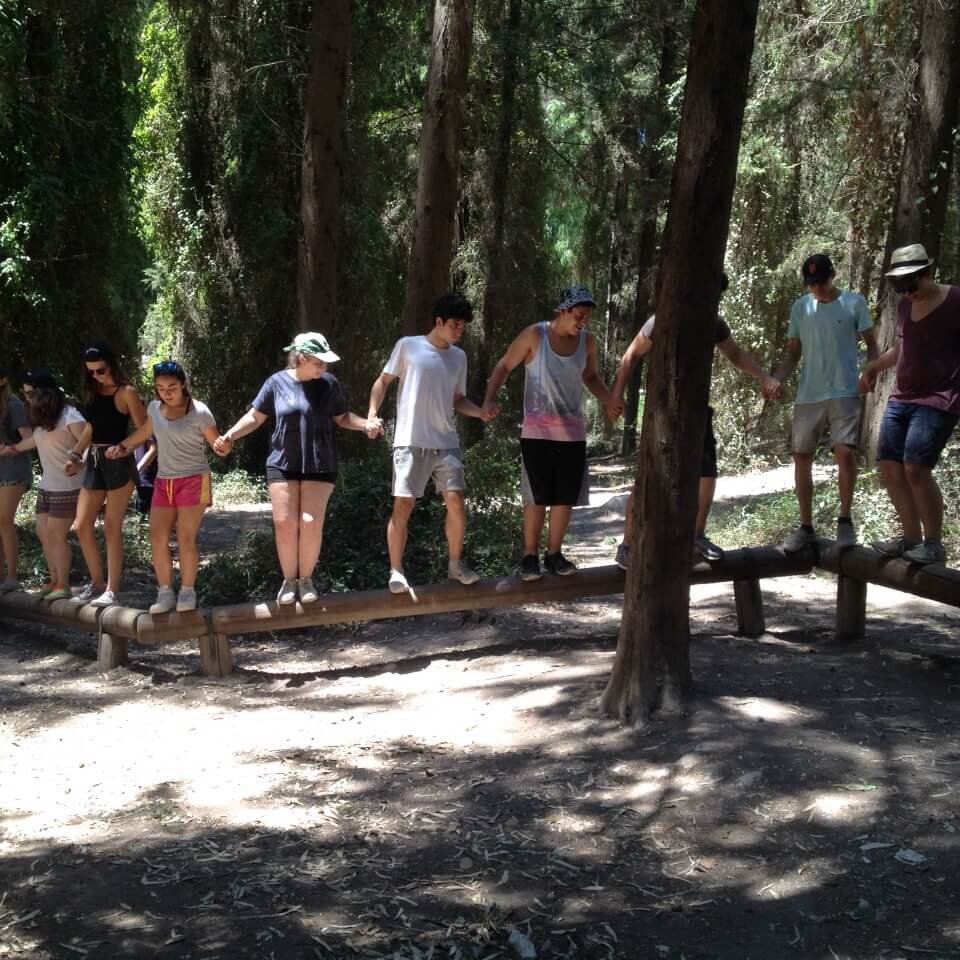
Instructing, facilitating, and mentoring teachers’ teams
teachers get to know themselves better, and strengthen their educational vision as we provide tools for improving classroom climates.
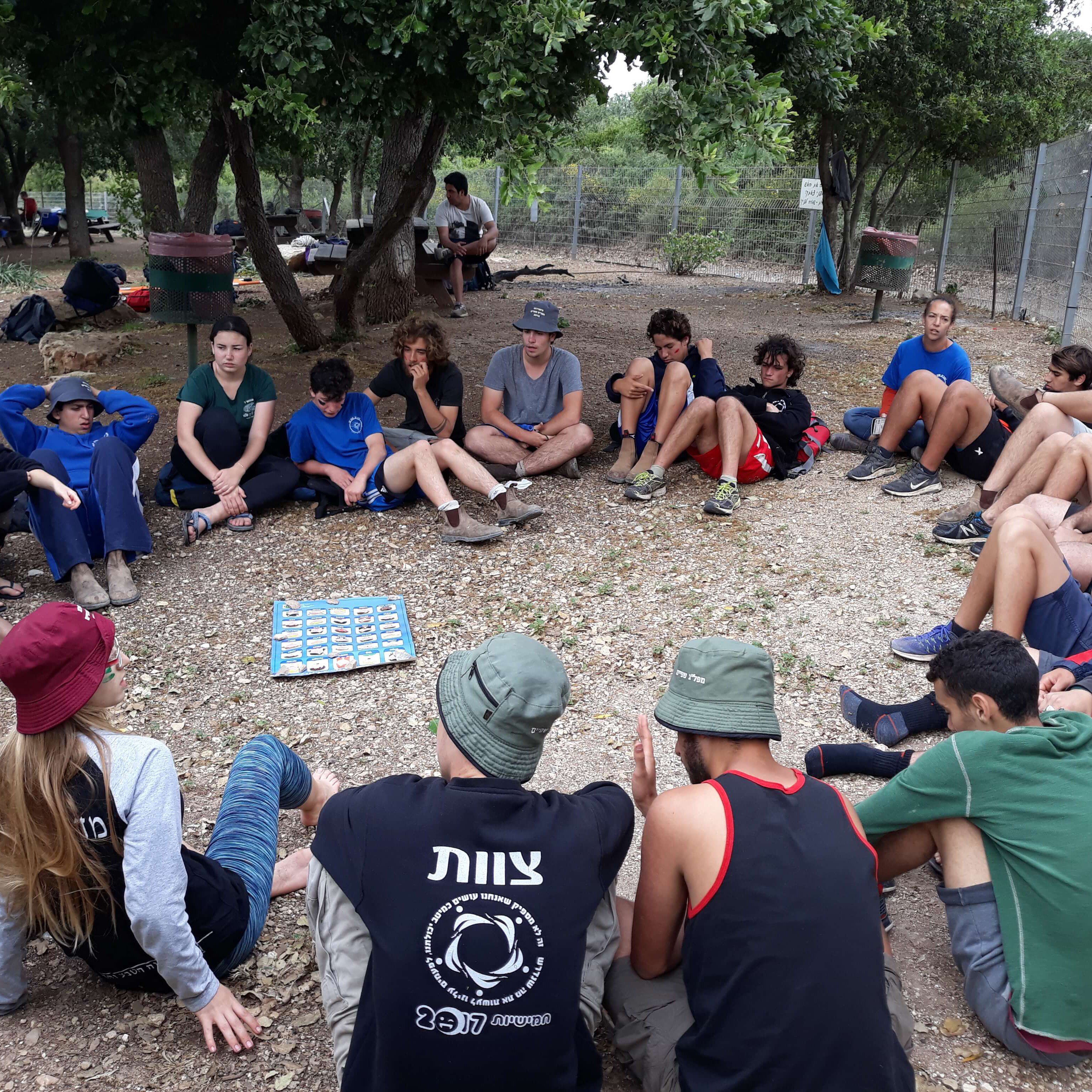
Workshops
The center hosts workshops for organizations and societies on various educational, inspirational, and philosophical topics and personalizes the content to groups’ needs. Most activities are held outdoors to encourage group dynamics. After the workshop, we gather, eat, share experiences, and reflect.
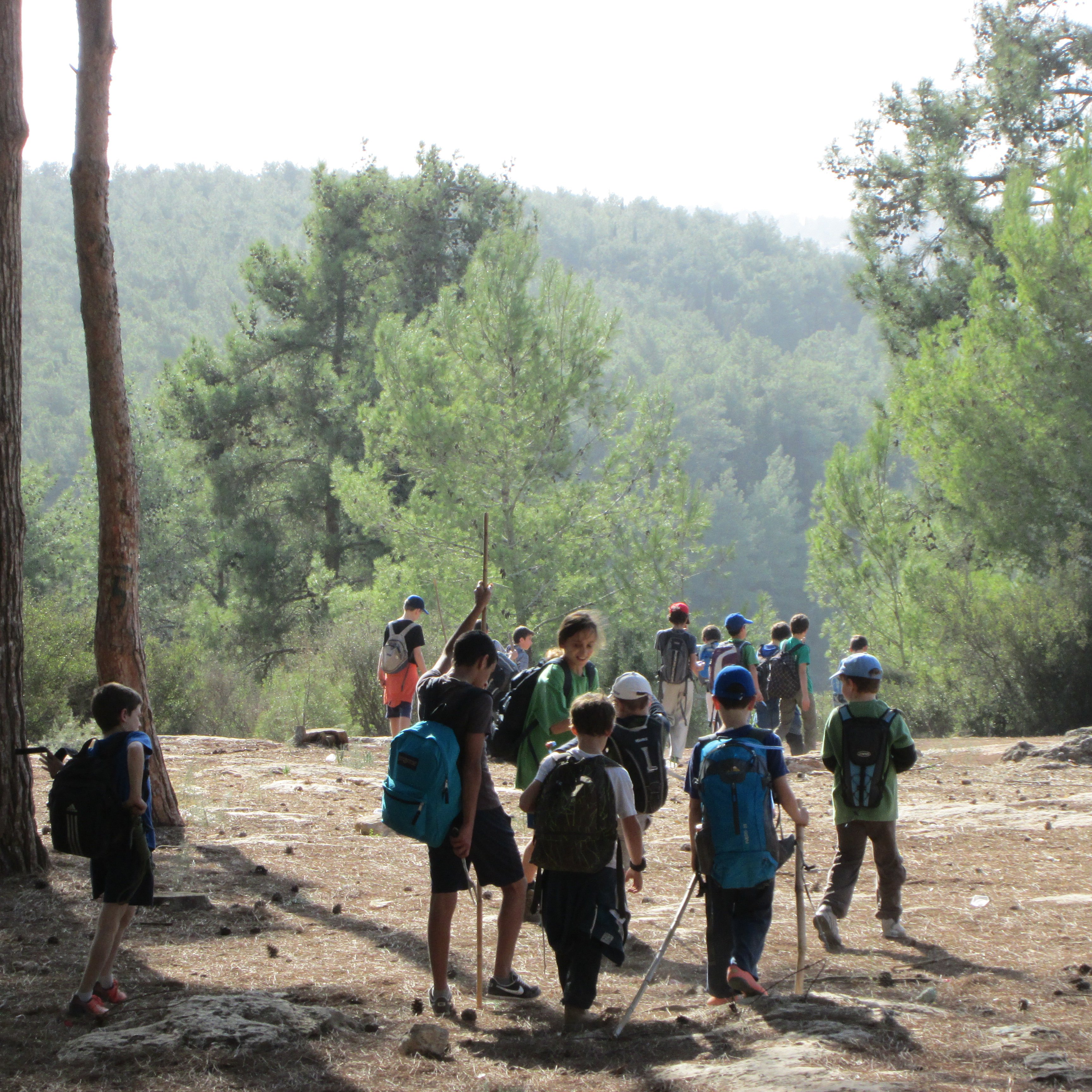
Wilderness expeditions
The center organizes wilderness expeditions for non-formal education programs and groups. Expeditions can take anything between a few hours to 3-4 days. The outdoors, nature, and wilderness welcome and provide the ideal surroundings and circumstances for group work; as individuals in the group undergo meaningful, educational, and value-added processes. A team from the center with a 4WD-vehicle accompanies the group every step of the way; guiding, supporting, and professionally responding to any need. We take safety and security issues extra seriously, and therefore personnel assigned to the expedition will always depend on the number of participants. Expeditions take place on weekends and during school holidays.
EDUCATIONAL VALUES & WHAT WE ADVOCATE
Our nature-based activities develop skills and proficiencies on two main levels
Growth and development processes performed in a group improve awareness, strengthen self-confidence, build self-perception, and teach social skills.
Our group activities, based on a series of sessions, take place once or twice a week. The process combines a challenge and then a group discussion. Participants carry out assignments which can be physical, creative, mental, and emotional. The facilitator mediates, directs, and reflects as the group discusses feelings, thoughts, choices, as well as practices empathy, softness, and so forth.
Each assignment provides for group processes to come into play and reflects on the group’s dynamics. Overcoming the challenge, it helps the group build cohesion and trust among its members, fosters leadership, and develops decision-making mechanisms.
Supporting experience processing, and with time and place appropriate, facilitators feedback and provide positive reinforcement.
Children who are more sensitive than others, whom also cope with social and emotional difficulties, can live with a sense of failure that hampers self-esteem. As a result, they often give up any idea or challenge even before trying. These children need a place in which they can express themselves, experience, and become stronger without fearing what people think or say.
During a series of sessions, we get to know each other, build mutual trust, and provide each child with a nature-based therapy and coaching plan that is built and tailored to meet specific needs.
During the sessions slowly but surely, step-by-step, and without pressure. the children get the opportunity to lead, each at their own pace. They then understand that success is possible, over and again.
Results are surprisingly fast which inspire the children and fill them with pride.
Experiencing success infuses courage and allows these children to dare, also in social settings that involve other children.
Children don’t remember words they remember experiences and how they felt
Therefore, experiential learning is a Shvilim Center’s premise. Whether in a private session or a group, hands-on experiencing physical, mental, and emotional challenges cultivate better internalization and learning the lessons from an experience or event.
THERAPEUTIC TOOLS - EXPERIENTIAL LEARNING & INSIGHTS
Children do not remember words; they remember experiences and how they felt. Therefore, experiential learning at Shvilim Center is a premise. The practice of physical, mental, and emotional challenges promise improved learning, as well as better internalization of personal conclusions derived from any event, whether experienced individually or in a group.
ACTIVITY EXAMPLES
We often use fire in our nonverbal activities;
because the way we work with fire teaches a lot about behavior.
Who lights the bonfire? Who is in charge?
Does anyone fear the act of lighting it?
Does the child plan his or her steps and actions, or do they go straight ahead with trial and error?
Are they satisfied with the bonfire, or were they frustrated because they were left empty-handed with no fire?
Who is responsible for boundaries? Fire boundaries, and perhaps personal boundaries?
Who takes risks, perhaps also in life?
Similarly, an activity with burning candles teaches much about success and failure.
Passing a burning candle four times, among a group sitting in a circle - just passing the candle around, passing the candle in silence, passing it silently with dripping on the hand, and passing the candle around blindfolded. Indeed, these rounds produce much frustration, but they also build cohesion and provide the conditions for group members to comment, reflect, demonstrate leadership, talk, get angry, etc.
Another activity is a sawing competition using blunt saws -
an activity that encourages achieving goals and perseverance.
Working with wood in a group has many benefits - it stimulates the sense of smell, ventilates aggressions, shows who helps who, who thinks about safety, and do the girls in the group follow a gender role or saw enthusiastically instead?
Heights
Working at heights immediately confronts children with fear.
Apparent, widely felt and expressed outdoors; fear is a key element of a person’s sole.
We, therefore, address it carefully.
We explain the role fear and its mechanisms play in our soles
and together with the children, we grow - upward.
We teach children to address fear, talk to it, regulate it, and restrict it.
Through the process, the children learn to handle, manage, and control fear
as well as overcome it.
Children who manage their fears know how to manage their anger.
NATURE AS A TEACHER
Work at the center is with nature, in nature, and through nature while facilitators mediate the natural surroundings, sow moments and life insights.
The natural surroundings offer many merits:
